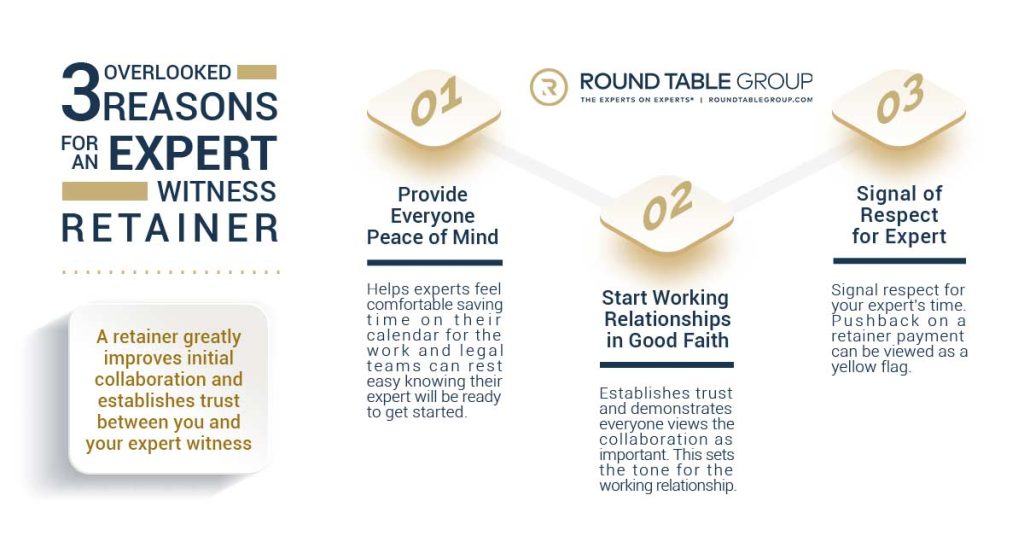The Overlooked Importance of an Expert Witness Retainer

Expert witness retainers and engagement letters are a staple within consulting and testifying engagements. They allow both parties to put the specific terms of their engagement in writing and avoid pitfalls or misunderstandings that could arise during the term of the contracts (frequently the length of the litigation). The aim is to clearly acknowledge critical terms and mitigate the potential for future issues.
While legal teams are undoubtedly aware of expert witness engagement letters and their purpose, some important aspects of requiring a financial retainer tend to fly under the radar.
Peace of Mind
An expert witness retainer delivers peace of mind to both the expert and the legal team early in the engagement. When a retainer is secured, experts feel more comfortable saving time on their calendar for the work. If a case settles, or the expert’s services are no longer needed, then they are confident they will be compensated for the time they set aside or already spent. This is especially applicable for nonrefundable retainers, which go a long way toward providing peace of mind throughout the collaboration.
The need for a non-refundable retainer depends on the specific type of retention. For retentions that last a long time, a non-refundable retainer is less important, however this should be clarified at the onset of the retention process. Sometimes experts and legal teams go through the entire process and the expert’s services are never used. Without a non-refundable retainer, the expert is required to pay this money back which can be viewed as unfair by experts that blocked off time and turned down other work.
With a retainer, legal teams can rest easy knowing that the expert is ready for them once the work is needed. The retainer reserves time from these experts, and expectations are set in the engagement letter. These expectations should clearly define specifics of payment processes. For example, if an attorney knows that their client does not pay for two months, then this should be established as to inform the expert. This allows the expert to say “OK, I will not worry that an invoice might be lost if it has not been received in 60 days.”
Start Working Relationships in Good Faith
A retainer establishes trust and demonstrates that everyone views the collaboration as important. From the perspective of an expert, this sets the tone for the working relationship. Many experts see pushback on a retainer as a bit of a yellow flag. Unless there are major disagreements in the specific terms, a retainer should help everyone involved feel valued and secure in the relationship being established.
Signal of Respect for Expert
Prioritizing the retainer payment signals respect for your expert’s time. Too often, in demand experts find attorneys taking advantage of them. Whether an attorney is seeking some free advice, or out on a fishing expedition, these experts have become cognizant of those looking to gain value without retaining the expert for their services. A retainer puts experts at ease as it establishes a baseline for collaboration and signals that the legal team understands the expert’s value.
A well drafted and mutually agreeable retainer not only helps mitigate potential problems, but goes a long way toward improving the early relationship by building trust, establishing respect, and prioritizing everyone’s time and effort.
For more than 25 years, Round Table Group has helped litigators locate, evaluate, and employ the best and most qualified expert witnesses. Round Table Group is a great complement to any litigator’s quest for an expert witness and our search is always free of charge. Contact us at 202-908-4500 for more information or start your expert search now.


